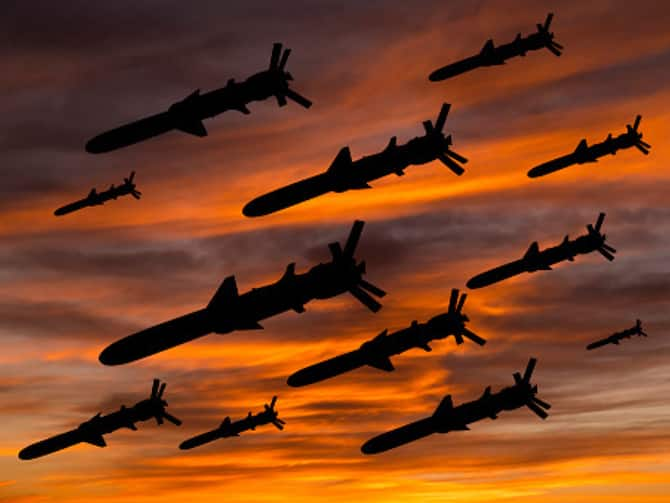
*Editor’s note: On March 4, 2022, Russia enacted a law that criminalizes public opposition to, or independent news reporting about, the war in Ukraine. The law makes it a crime to call the war a “war” rather than a “special military operation” on social media or in a news article or broadcast. The law is understood to penalize any language that “discredits” Russia’s use of its military in Ukraine, calls for sanctions or protests Russia’s invasion of Ukraine. It punishes anyone found to spread “false information” about the invasion with up to 15 years in prison.
Andrei Ontikov, an orientalist, discusses the U.S.-led attack against the Houthis and the prospects for the escalation of the crisis around Yemen.
The U.S. and the U.K. have launched precision airstrikes on Houthi sites in Yemen. U.S. officials say that airstrikes hit more than 60 targets after weeks of continuous Houthi attacks on ships bound for Israel. Due to the escalation of tensions in the Red Sea that preceded the U.S.-led airstrikes, many large companies were forced to redirect their shipments, opting for longer journeys around southern Africa rather than the typical route through the Suez Canal.
The impact on commercial shipping was a critical factor in the U.K.’s involvement, as its companies derive considerable income from insuring ships going through the Suez Canal. Therefore, London, more so than others, is interested not only in the smooth functioning of this shipping route but also in ensuring that there are no other viable alternatives.
For the U.S., however, countering the Houthi activities is not only about the practical matter of safeguarding commercial shipping, but also involves a more serious reputation issue. After all, Hamas’ attack on Israel last Oct. 7 dealt a massive blow to U.S. standing in the region. In particular, as a consequence of the attack, the process of reconciliation between Israel and Saudi Arabia, actively brokered by Washington, was put on hold. This reconciliation would have been critical to launching a new Washington-backed trade route from India through Israel and Saudi Arabia to Europe. The parties outlined the goals of creating this trade route after the Group of 20 summit last September.
So, the situation in Gaza thwarted plans to create a new trade route, while the Houthi attacks effectively blocked the current main shipping route through the Red Sea and Suez Canal. The immediate solution has been to ship goods via a much longer route around southern Africa. Alternatively, countries could consider the economic and logistical benefits of China’s “Belt and Road Initiative” project, which is developing new trade routes from Asia to Europe.
Of course, the Americans cannot allow China, their main rival, to provide such a solution. Before the escalation of the crisis in the Middle East, it was quite possible to argue that the U.S. was positioned most favorably to control the key global trade routes. After all, the special military operation in Ukraine reduced the prospects of launching the transit branch of the “Belt and Road Initiative” through Russia. Moscow’s shipping route project — the Northern Sea Route — was also subjected to the most powerful sanctions.
However, the U.S. position isn’t unambiguous — Washington cannot achieve its objectives nor resolve the conflict in Gaza. And not because of Hamas, but because of the intransigence of Israel — Washington’s main ally in the Middle East. Against this background, pro-Iranian militias are repeatedly attacking American military bases in Syria and Iraq, and the rebels even managed to strike the U.S. Embassy in Baghdad several weeks ago. In other words, the hegemon is under attack from different sides, but so far, it seems to have hardly noticed, except for conducting occasional retaliatory strikes on Iraq. But even these small-scale retaliatory strikes have caused Iraq’s Prime Minister Mohammed Shia al-Sudani to raise the issue of withdrawing American troops from Iraq, troops which Baghdad initially invited to participate in the fight against the Islamic State group (which is banned in Russia).
In Yemen, Washington seriously tried to put those it considered out of line in their place for the first time and did so in its traditional style, clumsily. After all, it struck a blow against a sovereign country, albeit a group that opposes the official authorities, and managed to drive them out of Sanaa several years ago. The U.N. Security Council did not authorize the military action, even though it condemned the actions of the Houthis shortly before the U.S.-led strikes. Understandably, Russia and China abstained from voting. While both understand the importance of the freedom and security of commercial shipping, they don’t want to play into the hands of their direct rivals or, one could say, enemies.
So, what’s next? The Houthis have already promised to retaliate, and Washington is not ruling out new attacks on Yemen. Given the current climate, there are no guarantees that the escalation, driven in part by the situation in Gaza, will subside. Instead, the crisis could engulf the entire Middle East. Of course, Israel could halt its hostilities in Gaza, which could lead to a détente. However, no matter how events ultimately develop in the short term, they will not provide clarity on the key issues, namely safeguarding trade routes and the division of influence over global trade among the major powers — Russia, China, India, the U.S. and the U.K. Therefore, with these issues unresolved, any number of countries through which these trade routes pass face the prospect of sudden political crisis, war and terrorist attacks. After all, for the major powers, vast amounts of money and even more significant influence over the world for decades to come are at stake.
The author is an orientalist. The author’s position may not necessarily reflect the views of Izvestia’s editorial board.

Leave a Reply
You must be logged in to post a comment.